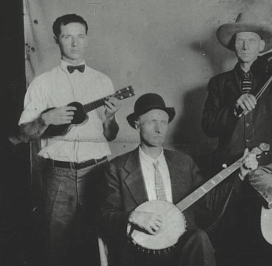Someone posted a question on Facebook asking people more or less my age whether they thought John Denver's hit "Take Me Home Country Roads" was "a country song," the topic apparently being part of the aftermath of the Ken Burns PBS series on country music.
I wrote this off the top of my head in reply, but I may come back here and change it if I decide I said anything I disagree with.
I believe from its 1920s beginning "country" has been a commercial music merchandising term to which people add whatever cultural baggage they want... and the industry was gradually Consolidated in Nashville ...
John Denver wasn't part of that Nashville Centric particular marketing / performance venue / Publications/ radio DJ system, at least in the beginning.
He crept in through the separate short-lived commercial "folk music" scene exemplified by the Kingston Trio and the early 1960s ABC Hootenanny TV show -- starring, among others, the Chad Mitchell Trio, which dropped Chad's first name when John replaced him. As the British Invasion rockscene took over teen culture, increasingly singer-songwritery "folk" college coffee houses and concerts and festivals kept going... (Bruce "Utah" Phillips had a great rap about my preferred part of the scene, performers like him who, unlike John Denver, did not want to be pop stars on any Billboard Chart and were more interested in "making a living, not a killing.")
That folk music scene and folk pop scene in the 1960s and 1970s had a different network of performance venues (college concerts included), radio programs (college FM), network television programs, PBS specials, and as the folk pop thing branched off what became a singer songwriter soft rock thing, some of the audience overlapped and migrated toward "country."
Meanwhile as "country" went through overproduced pop phases, the cleaner acoustic guitar and vocal sound and homespun lyrics of Denver, his collaborators, and a few other folk scene refugees became more acceptable to Nashville industry fans...
It's music. it's marketing. And it's listeners who don't give a crap and tune in what they like, when they can find it. Maybe they sing along. Maybe they play the songs at their local coffee house or open mic. Maybe they don't debate what label to put on something.





